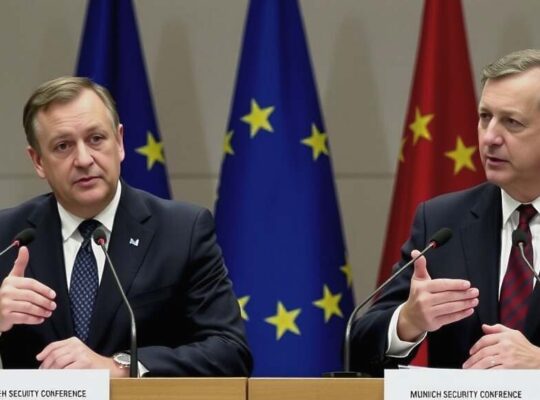The former German Minister of Health, Karl Lauterbach of the SPD party, has issued a stark warning about the escalating threat of political violence following a recent arrest in Dortmund. Expressing deep concern, Lauterbach stated he is unsure whether his name appears on a suspected “kill list” reportedly discovered during a raid involving German and Polish authorities. The list allegedly contains the names of former federal ministers, highlighting a broadening scope of potential targets.
“I don’t know if I am on this ‘death list’ or not” Lauterbach told the Redaktionsnetzwerk Deutschland. “But my impression is that the danger to top politicians in Germany is growing. Barriers have fallen, allowing for open and unrestrained discussion online regarding the punishment, abduction, or even assassination of politicians.
Lauterbach confirmed he regularly receives threats, which he reports to the police and continues to receive personal protection. He pointed to the recent discovery of a massive illegal weapons arsenal in Remscheid as evidence of the increasing ease with which individuals can acquire illegal firearms. “It’s much easier than it used to be to obtain weapons illegally” he noted.
The politician attributes the volatile security landscape to several converging factors. The ongoing war in Ukraine has significantly increased the circulation of high-caliber weapons within Germany, while the dark web has evolved into a platform for funding such attacks. “The willingness to use violence against politicians, the financing of such acts and the availability of weapons have all expanded” he explained.
Lauterbach’s warning comes in light of earlier attempts against him, including a foiled plot in the spring where four individuals were convicted and sentenced to lengthy prison terms for planning to kidnap him. He emphasizes the need for a long-term strategic response. “This is a significant danger that we must decisively confront” he declared. His recommendations include strengthening systematic monitoring of online spaces, boosting the resources of both the Federal Criminal Police Office (BKA) and state police forces and providing protection for those at risk while also conducting comprehensive oversight of the evolving threat environment. The incident underscores a deepening concern amongst German politicians regarding the erosion of democratic norms and the normalization of political violence within the country.












